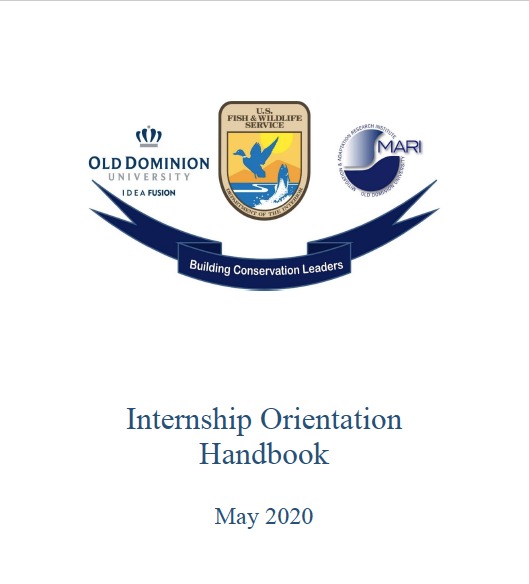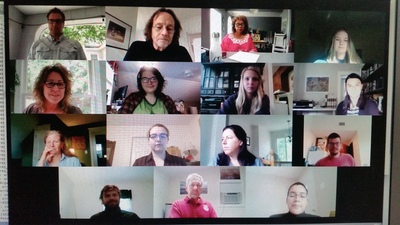IDS 369/CL 668: |
IntroductionThe internship course is a mandatory course for both the Minor and Graduate Certificate in Conservation Leadership. The interships in this course are conducted either as part-time of full-time internships. The intership mandates 300 hours at the host institution. Each student is required to submit an individual application to ensure that the student can be matched to requirements of a particular internship. After submission of the application and resume, an interview will be scheduled with the advisors to ensure that there is an optimal match between the host, project, location, etc., and the student's interests and qualifications. Each internship will focus on a wicked problem related to a "real-world issue" that constituted a leadership challenge in conservation. The student is expected to use the concepts of adaptation and sustainability science to analyse the wicked problem and to develop options of how to tackle this problem. The MARI case study template will be used for that. Each student will be mentored in the context of the course and will have a dedicated supervisor at the host institution. Weekly reports (bi-weekly for part-time internships) and weekly conversations of mentor and student will ensure that the mentor can provide guidance and support the student when needed. All submissions of reports and other documents have to be made in the workspace. |
Student ExperiencesDaniel MartinKelly JonesChristianna MortonDylan LawLeslie A. GomezOrientation WorkshopPrior to starting the internship, participation in an Orientation Workshop is mandatory. For this course, the Orientation Workshop took place as a virtual event on May 19, 2020 at ODU. For more details and the program, see below. |
ODU and US Fish and Wildlife Service (FWS) Partnership
Internship Program Orientation Workshop
May 19, 2020
This workshop took place as a virtual meeting.
|
The pandemic has exposed our societies to a global stress test that has triggered discussions about the “next normal” that we might want to head for instead of going back to the normal we had before the pandemic. At the same time, we see emerging changes in the values and behavior of large part of the population. All of this may have major impacts on what governmental and non-governmental organizations engaged in sustainability and conservation will aim for and how they will interact with a changing society. The workshop will have most value for the interns if reflections on what the “next normal” could and and should are included. Here are a few recommendations on readings:
|
 |
The Internship Orientation Handbook May 2020 |
Agenda, May 19, 2020
| 08:30 - 10:15: | Part 1 (recording) |
| 08:30 - 08:50: | Mamie Parker, Hans-Peter Plag (MARI, ODU): Introductions, Icebreaker and Ground Rules |
| 08:50 - 09:00: | Eddie Hill (ODU): Group exercises - Getting to Know Each Other |
| 09:00 - 09:30: | Alisa Rawlins (FWS Headquarters), and Hans-Peter Plag (MARI, ODU): Focus on Future Leaders in Conservation and Sustainability and Continuing Partnership of FWS and ODU (presentation Plag) |
| 9:30 - 10:15: | Eddie Hill (ODU, Moderator):: Environmental Conservation Work and the Relationship of the People to Nature in a Post-Pandemic World — a Conversation: Jill Bieri (The Nature Conservancy), Christy Everett (Chesapeake Bay Foundation) |
| 10:15 - 10:30: | Coffee Break |
| 10:30 - 12:00: | Part 2 (recording) |
| 10:30 - 11:30: | Mamie Parker and Alisa Rawlins (Moderators): Panel Discussion - Priorities for Conservation in a Changing World: Lauren Mowbray (Back Bay National Wildlife Refuge), Chris Lowie (Great Dismal Swamp National Wildlife Refuge), Michael Bednarski (Virginia Department of Game and Inland Fisheries), Jennifer Huggins (First Landing State Park) |
| 11:30 - 12:00: | The 2020 Students: A Reflection on the Group Case Study for The Nature Conservancy (presentation) |
| 12:00 - 12:30: | Lunch break |
| 12:30 - 15:00: | Part 3 (recording) |
| 12:30 - 12:40: | Eddie Hill: Group Exercises - Recovering from Lunch |
| 12:40 - 13:15: | Hans-Peter Plag (Moderator): Panel: Reflections from the Past — With students from the 2017, 2018, and 2019 Cohorts: Rachel Case, Gabriela Giacomangeli, Angela Kennedy, James McCann, Elton van Buskirk, Alexa Zwicker |
| 13:15 - 15:00: | The 2020 Students: Presentations on Internship projects with live Feedback:
|
| 15:00 - 15:15: | Tea Break |
| 15:15 - 17:30: | Part 4 (recording) |
| 15:15 - 15:45: | Mamie Parker: Planning a Successful Internship with Emotional Intelligence Awareness (presentation, Compass exercise) |
| 15:45 - 16:15: | The 2020 Students: Individual Exercise — Visioning a Successful Internship and Conservation Career (Coat of Arms, Goal Poster) |
| 16:15 - 16:45: | Lauren Eichler, Hans-Peter Plag : Ethics and Values (2019 Values, 2020 Values) |
| 16:45 - 17:15: | Eddie Hill: Setting the Stage for a Successful Internship (presentation) |
| 17:15 - 17:30: | All: Reflections, hopes and fears, burning questions and answers, parking lot items, moving forward. |
